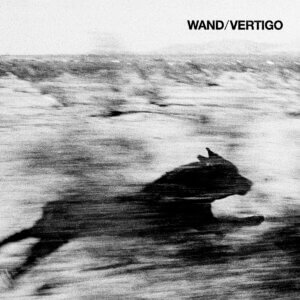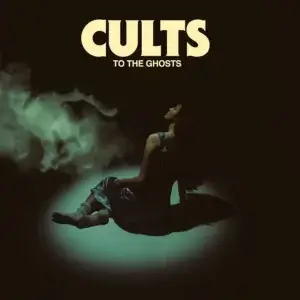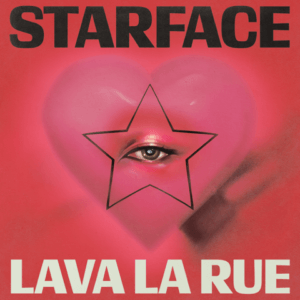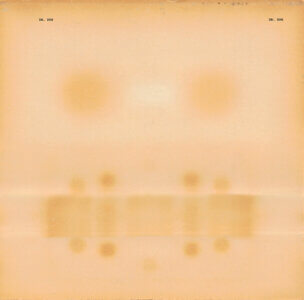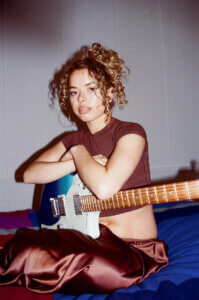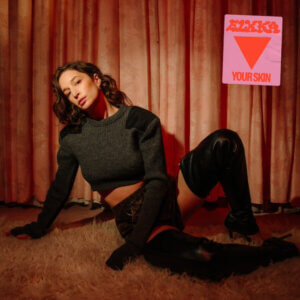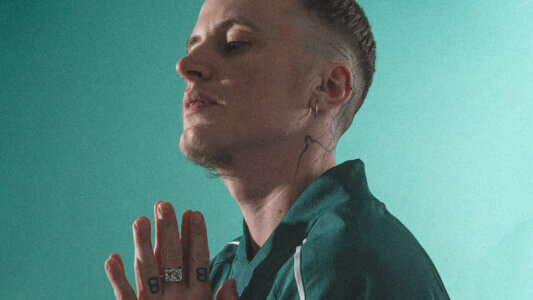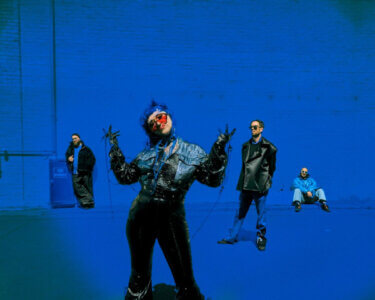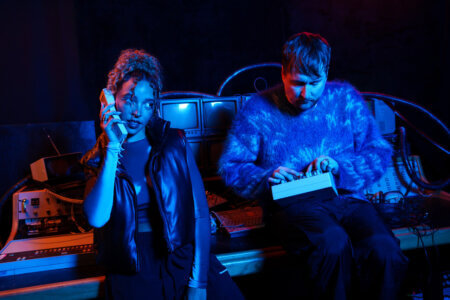Interview with Dave Okumu of The Invisible
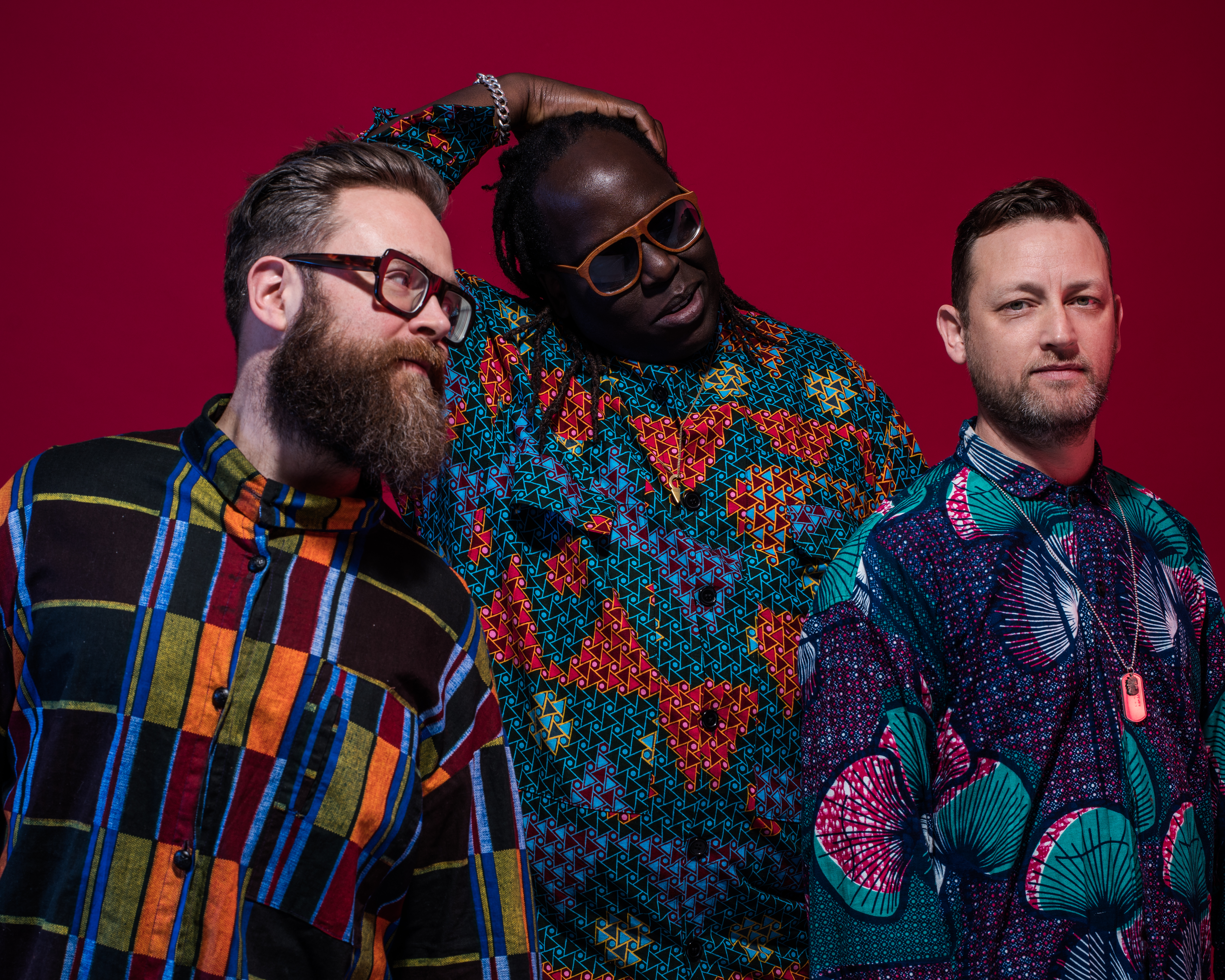
London-natives, longtime friends and frequent jammers Dave Okumu, Tom Herbert, and Leo Taylor first came together as The Invisible in 2006. Their self-titled debut album released in 2009 to critical acclaim, and since signing under Ninja Tune they’ve released 2012’s Rispah and 2016’s upcoming Patience. Okumu, who handles guitar and vocals, has been very open about how the loss of his mother affected the writing of Rispah, and how his near-fatal onstage electrocution accident in 2012 has given he and his band a new appreciation for life. Dave Okumu was kind enough, to speak with us via Skype.
Northern Transmissions: Thanks for taking the time to talk to us. The Invisible’s third studio album, Patience comes out June 10. Any last thoughts before it drops?
Dave Okumu: It’s always great putting new music out—I guess it’s about possibility. You never know where it’s gonna take you and I think that’s an important feeling to engender in one’s life, so yeah, it’s just an exciting time. I’m so glad to be putting another record out.
NT: For sure. I read you took the band’s name from [Irish poet] John O’ Donohue’s idea of humans in a parallel world, visible and invisible. How does that factor into your sound and lyrics?
DO: I guess it’s not a direct thing, more an attitude and posture to approaching life. I always try to choose titles that will remind me of something I feel I need reminding of. It’s about reminding myself that it’s important to take care of the interior life through your intentions and allowing that to inform everything you do. It’s about trying to be in touch with yourself and truthful with what you express, and it feels really special to have the space to do that by making music.
NT: Definitely. You can see it in the new album’s song titles, like “Believe in Yourself”.
DO: Yeah, like little mantras!
NT: You’ve described your last album, Rispah (2012) as “a love letter to grief”. So is Patience more of a celebration of life?
DO: Yeah, exactly. I think it’s important to say that those things are by no means mutually exclusive. There’s a real issue in our culture, we’re encouraged to run away from pain and not confront it, but I think it’s only by doing that that you can come to a place where you experience real joy. It’s a part of human life. There’s a Martin Luther King quote about ‘suffering being legitimized through redemption’, so that idea to me is like if you find a holistic way to pass through difficulty in life, it can be transformed into something really positive, and I really believe that. The fact we got through the stuff we did making the second album and we’re here making music there’s a newfound appreciation of life.
NT: Yeah for sure. I read about your electrocution accident in Nigeria, that’s amazing that you survived that.
DO: Yeah, I mean that was… [laughs] That was totally remarkable. I’m not being trite, but I do feel like the luckiest man alive. Technically I shouldn’t have survived that, I was very, very lucky to survive that experience and that has definitely informed—those two events, losing my mother and nearly dying a few months later myself, they’re such significant markers for me, and the fact that we passed through those things together as a band has left me with a new perspective on things.
NT: So would you consider Patience as bookending the thematic era of life and death or is that something that will continue in all your work?
DO: I think it’ll continue. A friend told me about reading this notion that there will be an event in your life, and it might be traumatic, and it might happen when you’re 18 or 40 but it sort of splits your life in two, and everything from the other side is sort of appraised through that prism, hopefully in a positive way. It’s interesting that those two events in my life were so painful on so many levels, but they’ve placed me in a new landscape. My mum not being around anymore, you know, to me that’s an atmosphere that will remain until the end of time. It’s not the end of a chapter or closure, it’s about embracing a new landscape.
NT: In terms of sound, the new album is very mellow and confidently relaxed, but also very uplifting and inspirational. What kind of dialog are you hoping to open up with listeners?
DO: I think when you’re involved in creating and expressing, there’s an opportunity to channel things which I believe are fundamentally true—that’s what I felt from my heroes. There’s a sense that through their commitment to expressing something as honestly and as well as they can, they sort of create this liberation and acceptance of what it means to be a human being. I think that all great art to me has this common thread that links the entirety of human experience—not one thing at the expense of another. The things that have stayed with me, the albums that have had a lasting impact, they seem to have a holistic quality. They don’t fear any aspect of life, and I hope there’s a sense of that freedom in our music. If it felt in some way our music contributed to that dialog, I’d love people to feel a sense of recognizing that experience and feel good about being human—to me that’s the highest thing we can do for each other, legitimize the human experience.
NT: For the new album you pulled in more outside influences and collaborations with other artists. How has this changed your sound in the four years since your last album?
DO: It’s been really different, but interesting. We’re not new to collaboration, and we’ve spent a lot of time contributing to other people—touring with Floating Points last year, getting to work with Adele [on her album 21 (2011) and 25 (2016)] was huge. Bringing in other people’s visions is an important part of our identity, and we don’t want to force it. We wanted to express our connections with other people organically, in a celebratory way.
NT: For being just a trio of guys it’s amazing the level of production you can bring to your live shows, but is the grander material on Patience going to pose a challenge for live performances?
DO: All of our records in different ways have been layered and textured and complex, that just a side of who we are and how we hear and create music. The second record’s very different from the first in that it has a single tone and mood running through it just from the fact that it was defined by the experience of losing a parent. It’s exciting working out how to interpret that line—as a band we love the idea of being able to present something live that’s different from the record, it comes as another creative challenge. It comes from the belief that if you make something good, it should be able to withstand interpretation and still retain the integrity of the original idea. We like being wildly experimental and try to push ourselves in that way—it’s satisfying to make a lot of noise between the three of us [laughs].
NT: You’ve never latched on to any genre besides what you call “new musical elixirs”. Do you see genre and labels as more of a restraint?
DO: Yeah, kind of. I think it’s a necessary one for people; it’s a way to get people to buy into an idea. There is something inherently reductive about genres, and sometimes it’s useful to reduce things, but there will always be a way artists aren’t necessarily comfortable describing the style of music they make because they want to feel free and unconfined. Human beings are complex and multilayered, and I think the highest praise for me and our style of music is for people to just think of it as our own music. All my favorite artists have that quality about it—even if you might say Prince is “pop” music, when you start picking the DNA within that, it’s incredibly rich, but people just think “it’s Prince”. I’m always inspired by people who don’t cling to that stuff and just express what they love.
NT: Speaking of Prince as an example, I was listening to your tribute to him, “Oceans of Purple”. Would he, or any other artists be a major influence on Patience specifically?
DO: Not really. I mean, yeah, I feel like I’m in a constant dialog with Prince, he was there from the beginning for me. The first record I bought was Sign o’ the Times (1987), and he kinda saved my life and changed everything for me—there are those artists that kickstart you and remain in your DNA. I feel like my responsibility as a person who makes stuff is to just be connected to my inspiration. I love the fact that my “job” is to be in touch with what inspired me, but I’m most interested in that at the deepest possible level. I don’t want to sit there and think “I want to make a record that sounds like what someone else made”, I just try to let that stuff come to the fold in a natural way. Influences pass through you, and you should channel them rather than emulating or copying them. I try to stay in a constant flow of absorbing inspiring things, and there are people who have always been in that backdrop—Prince, Grace Jones, Joni Mitchell, Jimi Hendrix, you know, the good stuff. I just hope that’s all in the mix.
NT: Any final messages for fans or a pitch for new listeners?
DO: The thing that’s on my mind at the moment, I feel compelled to talk about what it’s like for artists to sustain a creative life just in terms of how music is consumed. There’s a part of me that feels self-conscious about promoting myself and saying, “buy my record” because it feels crass and like you’re trying to pressure people to buy a product. There’ll always be this weird relationship between art and commerce, but I’m really craving a space to have a more transparent conversation about the issue that music has so much currency in our culture but it’s not valued properly, and what an impact that has on people. I don’t want to say to people “buy my record and love it”, but if you love it, buy our record and support us. We need your support and we’re nothing without you. We’ve had people connect with our music and feel really lucky that way, but sometimes it’s not reflected in the models that exist in our industry, in sales.
This is a common and concealed narrative about artists, but people don’t talk about this shit because they don’t want to look bad [laughs], everyone wants to look like they’re really cool and selling shitloads of records and they’ve got billboards but whatever. I’ve worked with artists across different stages of their career, and I see a thread that exists for artists starting out to really established artists—a discrepancy between how much currency music has and how much it’s valued. I want people to think about that if buying our record: it’s nothing but love, basically [laughs].
Interview by Matthew Wardell
Latest Reviews
Tracks
Advertisement
Looking for something new to listen to?
Sign up to our all-new newsletter for top-notch reviews, news, videos and playlists.
